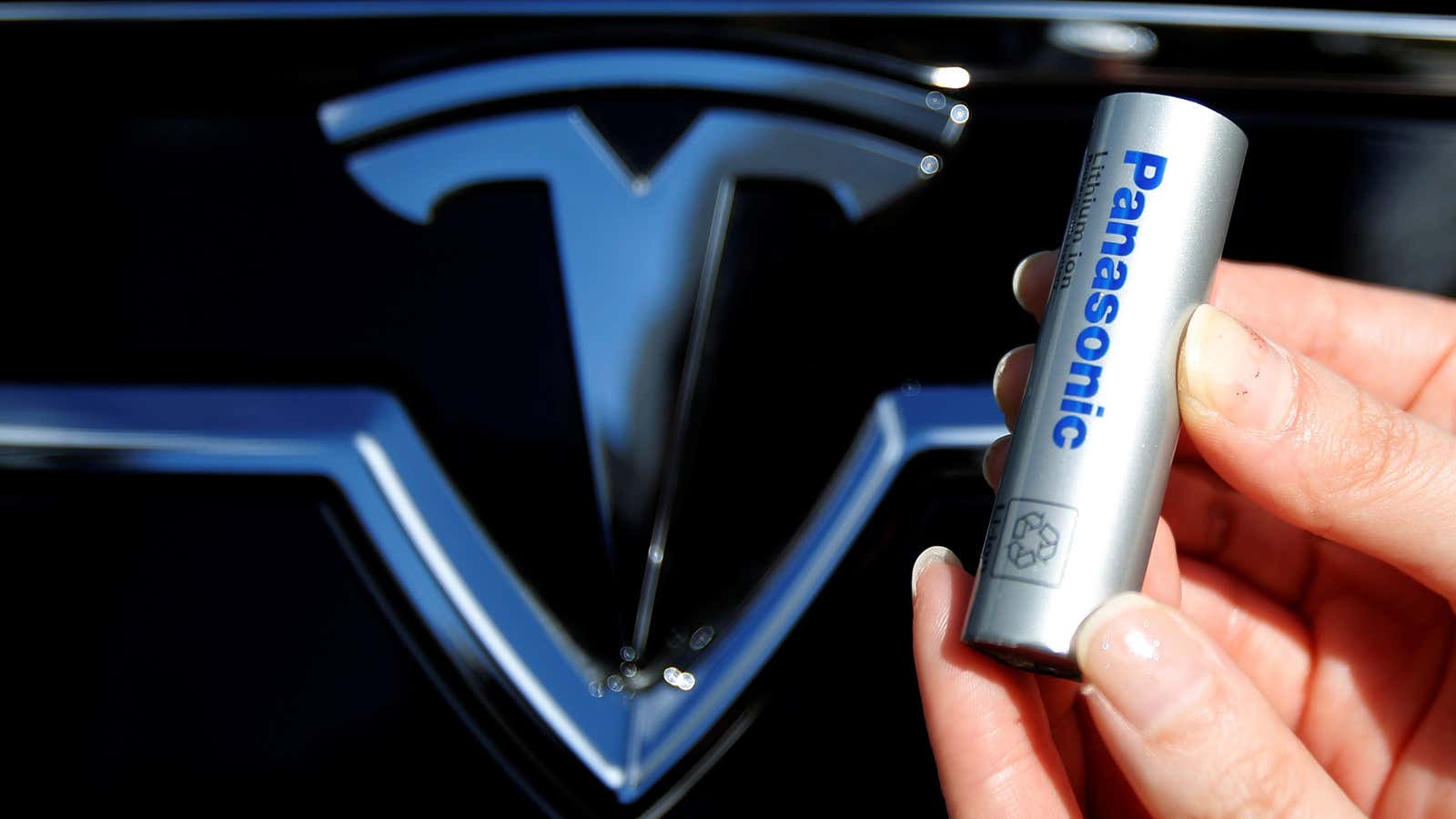It’s getting obvious Tesla wants to move deeply into the battery business.
The California carmaker is now developing its own battery cells at a “secret lab,” CNBC reported yesterday (June 26). Employees working out of an existing facility near its Fremont manufacturing plant are developing battery cell prototypes, and new manufacturing processes to mass produce cells. The company has recently posted a number of jobs related to battery cell design, the report said.
Moving into battery cells could help Tesla better control the cost of its EVs—if it can manufacture battery cells more efficiently than its supplier, Japanese electronics firm Panasonic. In April, Tesla founder Elon Musk blamed Panasonic cell lines at Tesla’s Nevada Gigafactory—a joint venture between the two—for holding back production of its most affordable model, the Model 3.
Battery cells are the units of a battery module. Multiple modules are put together to make the battery pack that powers the car. It’s not uncommon for EV makers to source cells from battery manufacturers and then make modules compatible for their car models—as Tesla does with Panasonic cells. The two produce around 60% of the global electric vehicle battery output, according to a tweet from Musk in November.
But Tesla is shaking up its six-year partnership with Panasonic. In April, as Panasonic froze plans to invest in the expansion of the Nevada Gigafactory 1, Musk tweeted that Tesla had “no choice but to use other suppliers for Powerwall/Powerpack cells.” In China, Tesla’s reportedly been talking to Chinese EV battery makers. This month, Tesla acquired battery maker Maxwell Technologies, and Musk said in the firm’s annual shareholder meeting that Tesla could move into the mining business to go further down the lithium-ion battery supply chain.
Tesla’s battery strategy increasingly looks like that of BYD, the world’s largest EV maker (Quartz membership) and China’s second-biggest battery supplier, which makes the cells for its own EVs. It sold some 100,000 electric vehicles in 2018.
Tesla and Panasonic didn’t immediately respond to questions.
Since the battery makes up of 40% of an EV’s price, controlling production can help reduce exposure to price increases from battery manufacturers, and perhaps make it easier to scale production.
Globally, other carmakers are entering battery manufacturing too. Volkswagen is investing in a battery cell factory in its home base Germany. Toyota is working with Panasonic to build a battery joint-venture next year, hoping to sell batteries to other EV brands.
Still, while Tesla’s talking with other battery makers for the Shanghai Gigafactory, it may well settle on Panasonic batteries for its made-in-China models, CNBC reported. China on Monday signaled foreign battery makers might be more welcome than they used to be, by dropping a five-year-old policy that steered car makers toward Chinese battery firms.
Looking for more in-depth coverage? Sign up to become a member and read more in-depth coverage of China’s electric-car boom in our field guide
